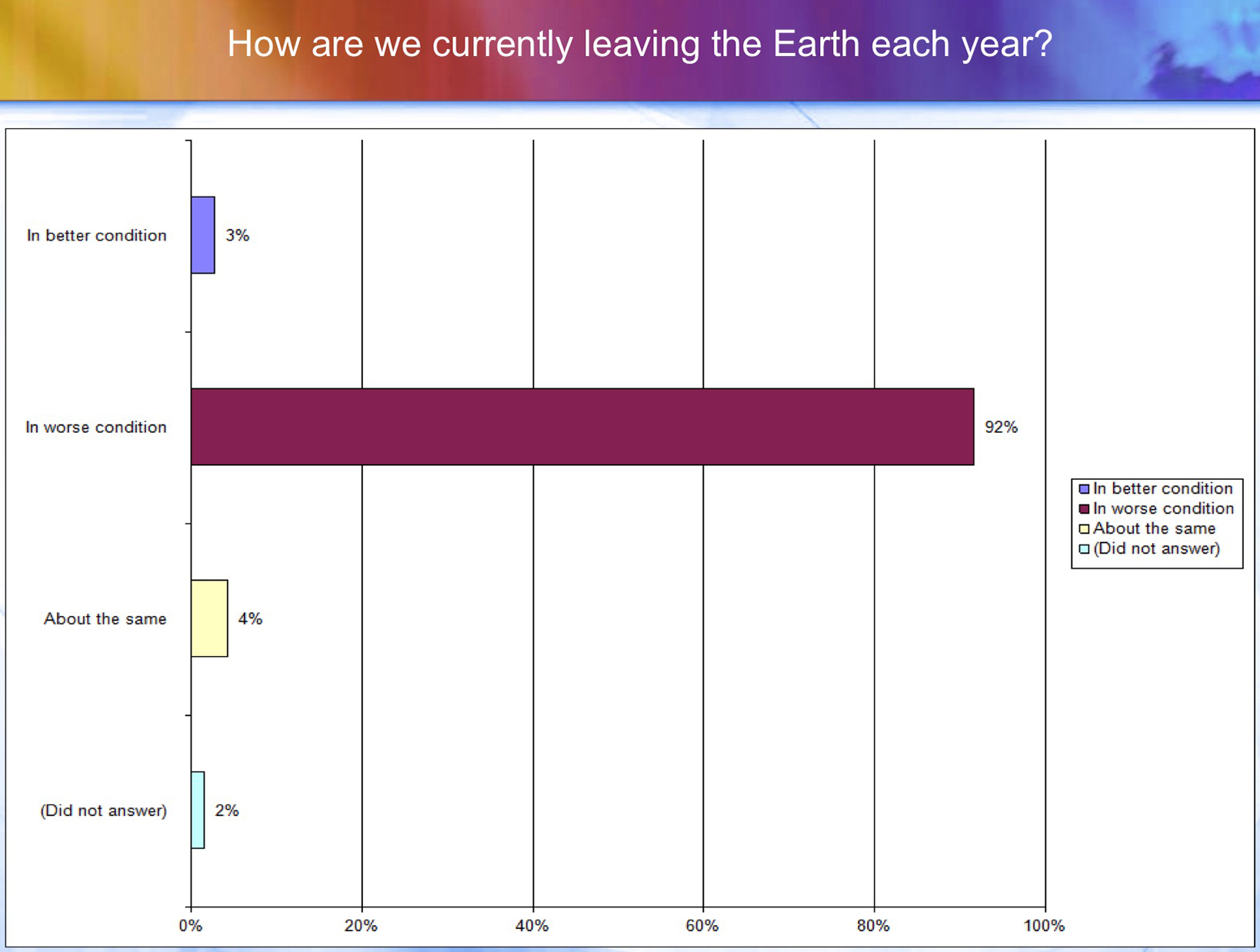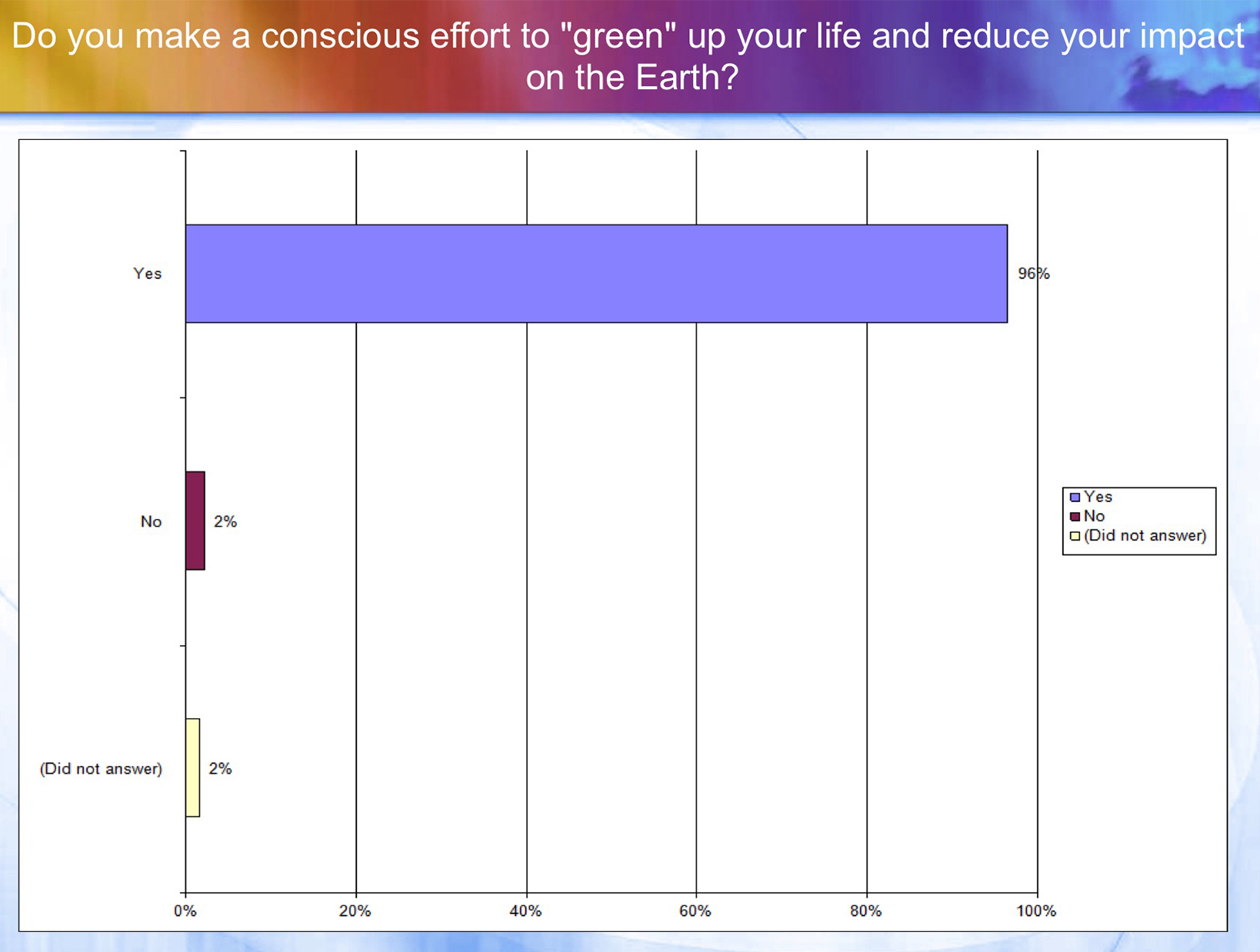COLORADO SPRINGS, Colo. - Oct. 11, 2016 - PRLog -- How often do you weigh your environmental impact when deciding whether to take the stairs or elevator, choose grocery bags, carpool or combine trips in the car? A surprising 71 percent of people surveyed consider the environmental impact of their behavior multiple times every day. 18 percent indicate they do this once a day, and just 7 percent consider their impact weekly.
The Green Living Survey, conducted by the non-profit GrowthBusters project, was not a scientific sampling. Respondents participated in response to Facebook posts and ads, and newsletter invitations from environmental NGOs. GrowthBusters director Dave Gardner believes this led to above-average interest in environmental health and sustainability among the 331 respondents who participated.
Respondents were asked to rate 12 different behaviors according to how much each would reduce impact on the planet. More respondents correctly identified "conceiving one fewer child" as making the most difference. An Oregon State University "carbon legacy" study determined that, in the U.S., the greenhouse gas impact of an extra child is almost 20 times more important than other environmentally sensitive practices people might employ their entire lives. Other behaviors ranked high in the survey for reducing impact included replacing fossil fuels with renewable energy, and eliminating meat from the diet. Replacing light bulbs with LEDs and adjusting your thermostat were ranked lowest.
A large percentage of the environmentally concerned populace, 92 percent of those surveyed, believes human activity is leaving the Earth in worse shape every year.
Gardner commented, "I'm impressed with this result and hope respondents understand the full ramifications - that the scale of human activity on the planet is resulting in a net loss of biosphere capacity every year." This is, in fact, happening, according to data from the Global Footprint Network. 3 percent feel the planet is left in better shape each year.
When asked which is causing the most injury to ecosystems, 10 percent selected over-consumption and 16 percent picked overpopulation. 72 percent chose both.
Respondents weren't optimistic about the odds of improvement. When asked to rate the likelihood of significant progress "reducing or ending over-consumption this century," 77 percent chose ratings on the unlikely end of the spectrum. The most popular answer (21%) was a rating of 2 on a 1 to 10 scale, with 1 being "extremely unlikely" and 10 "extremely likely."
Asked to rate the likelihood of significant progress "on ending population growth this century," the most popular answer was a rating of 1 (22%) on the same scale. 76 percent chose ratings on the unlikely half of the spectrum.
When asked about the likelihood of "significant progress on contracting world population this century," the responses were even less optimistic. 29 percent rated the chances at 1 (extremely unlikely). A full 86 percent landed on the unlikely half of the scale.
The majority of responses came from Australia, Canada, New Zealand, the United Kingdom and United States.
Survey Results
GrowthBusters is a public education project of Citizen-Powered Media. Its mission is to raise awareness about limits to growth and inspire sustainable action.
Contact
Dave Gardner
***@growthbusters.org
Photos: (Click photo to enlarge)





Read Full Story - Survey: Trees Get a Lot of Hugging | More news from this source
Press release distribution by PRLog
